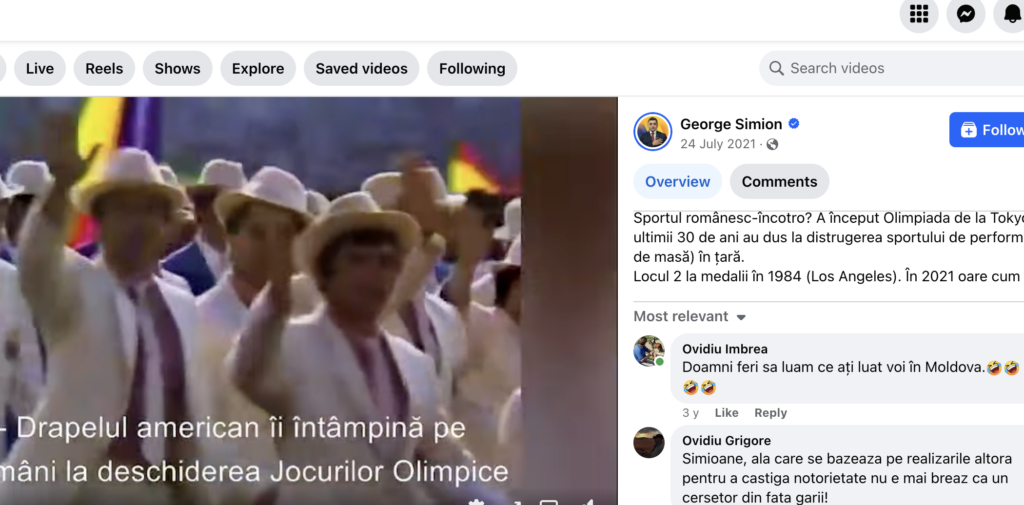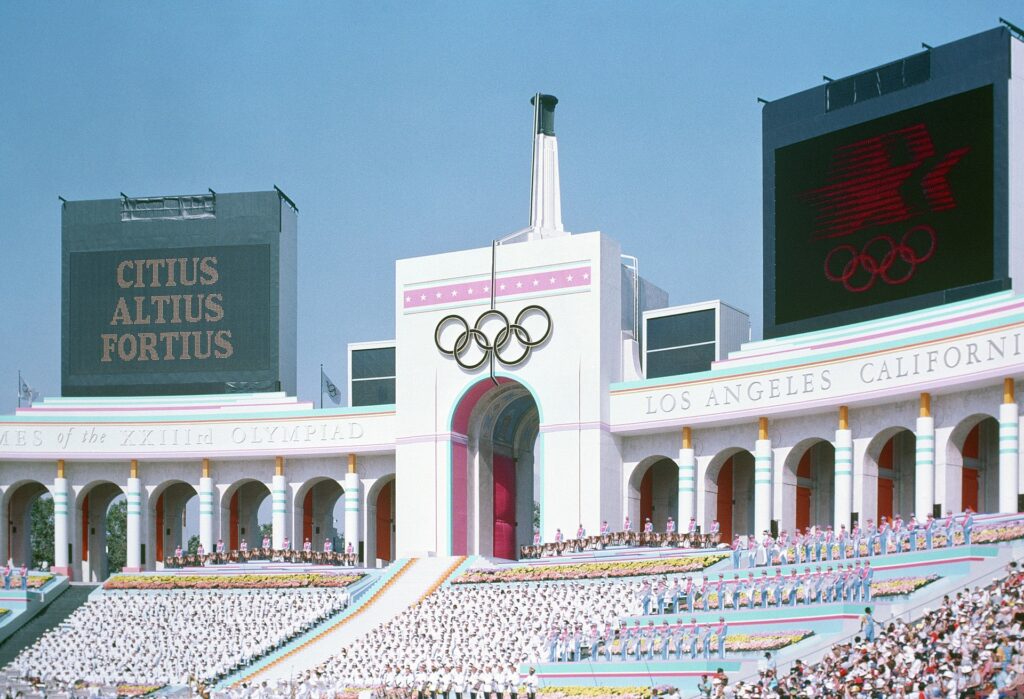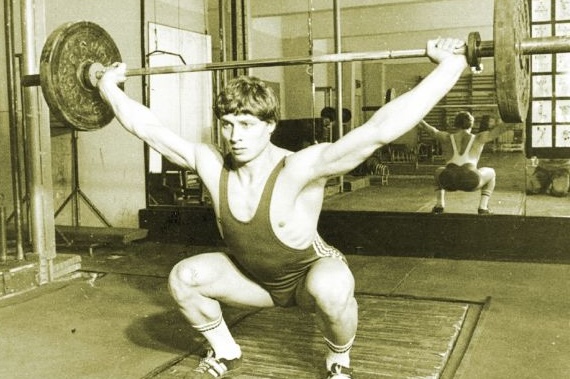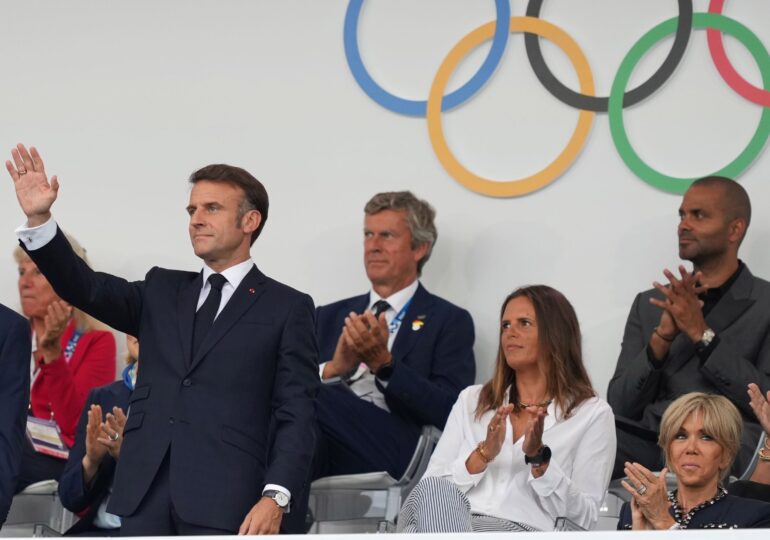In July 2021, exactly on the day of the opening of the Tokyo Olympics, George Simion posted a video on his Facebook page.
Over time, the video gathered over a million views, but it did something more, it created a trend that persisted three years later at the Paris Olympics.
The video in question is a snippet from the television broadcast of the opening ceremony of the 1984 Los Angeles Olympic Games.
"Romanian sports - where to? The Tokyo Olympics have started, but the last 30 years have led to the destruction of performance sports (and mass sports) in the country. 2nd place in medals in 1984 (Los Angeles). How will it be in 2021?" wrote George Simion at that time.

The nostalgic question created a wave of posts and shares lamenting the decline of Romanian sports, but also praising the communist regime for its care towards athletes and sports.
Many of those nostalgic for the communist era and Nicolae Ceaușescu would be surprised to find out that the performance of Romanians at the Sydney Olympics in 2000 is at least as glorious as that in the USA, if not even more valuable due to the historical context.
The Record from Los Angeles
The Romanian delegation obtained a total of 53 medals in Los Angeles in 1984: 20 gold, 16 silver, and 17 bronze.
Our country ranked second in the nations' standings based on Olympic titles (gold medals), after the USA (83), and third in the total number of medals, after the USA (174) and the Federal Republic of Germany (59).
1984. Los Angeles. Romania, 53 medals. 2nd place in the world after the USA, the host country. How did we get here? In the '80s, in all courtyards, among blocks of flats, on school sports fields, and in sports facilities, on fields and village streets, children jumped, ran, fought, starting with simple games or a rope made from one end of a string
Valentin Grecu, Facebook post
Pressured by the Soviet Union, 19 countries boycotted the Olympics in Los Angeles in reaction to the fact that in 1980 the USA, along with 59 other states, did not participate in the Moscow Olympics due to the USSR's invasion of Afghanistan.

Romania also participated in the Olympics in the USSR, where they obtained 25 medals: 6 gold, 6 silver, and 13 bronze.
At the 1980 edition, there was a scandal in gymnastics where several members of the Romanian delegation, as well as sports commentator Cristian Țopescu (1937-2018), accused Soviet officials of unfairly treating Nadia Comăneci, denying her the title of individual all-around champion.
Olympic Performance in the "Golden Age" and Beyond
Although sports were a crucial vehicle for Nicolae Ceaușescu, seeking validation for his dictatorial regime, it cannot be said that our country was an Olympic force during that period, with the episode in the USA being an exception.
Between 1965 - 1989 (six Olympic editions), under Nicolae Ceaușescu's leadership, Romanian athletes obtained a total of 160 medals, including 44 gold.
After 1989, in nine editions, Romania obtained 113 medals, including 38 gold.
From these figures, it can be observed that after the fall of communism, athletes from our country, despite various difficulties, prolonged economic crises, transition periods, and lack of investments in infrastructure, have performed more than honorably.

The numbers also show that Olympic performance is related, in addition to creating optimal training conditions, to the selection system and training methods.
Having stadiums, halls, and pools is useless if you do not have players, coaches, and methods to enhance performance.
The Best Olympics
On social media, nostalgias of the communist era and aggressive nationalists do not mention the Olympic performance of Romanian athletes at Sydney, Australia, in 2000.
At that time, our country's delegation obtained 26 medals, including 11 gold, with all qualified countries participating, without any political boycott.
Romania achieved its second-best performance after Los Angeles in Olympic titles, 11 compared to 20, and third in the total number of medals, after Los Angeles (53) and Montreal (27).
The success in 2000, which is rarely mentioned, demonstrates the potential of the Olympic movement in our country, but achieving it requires a national strategy for sports.
There are disciplines that people only remember every four years or when a European or world title is won, but a greater effort is needed for promotion, communication, and support of athletes' performance.
Propaganda and Truth
The Paris Olympics are depicted on social media as a battleground.
The Kremlin's propaganda is doing everything possible to create tensions around a highly competitive global event, especially since Russia was banned from participating following the bloody war it started against Ukraine.
Powerful campaigns of division and social tension are unfolding on social media. However, looking beyond the propagandistic messages, the numbers tell a different, more nuanced, and spectacular story.

